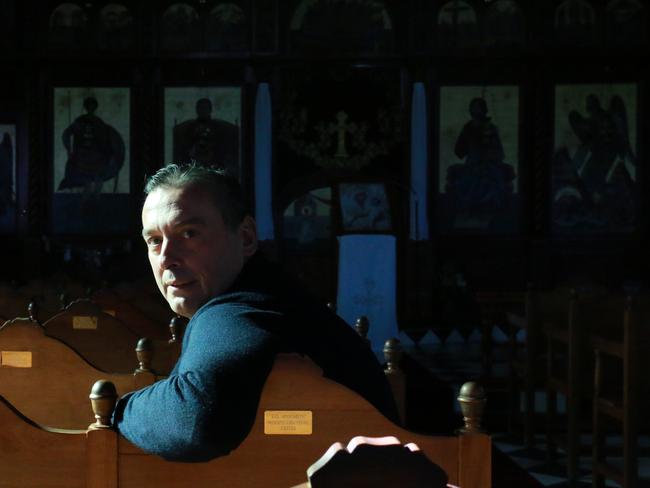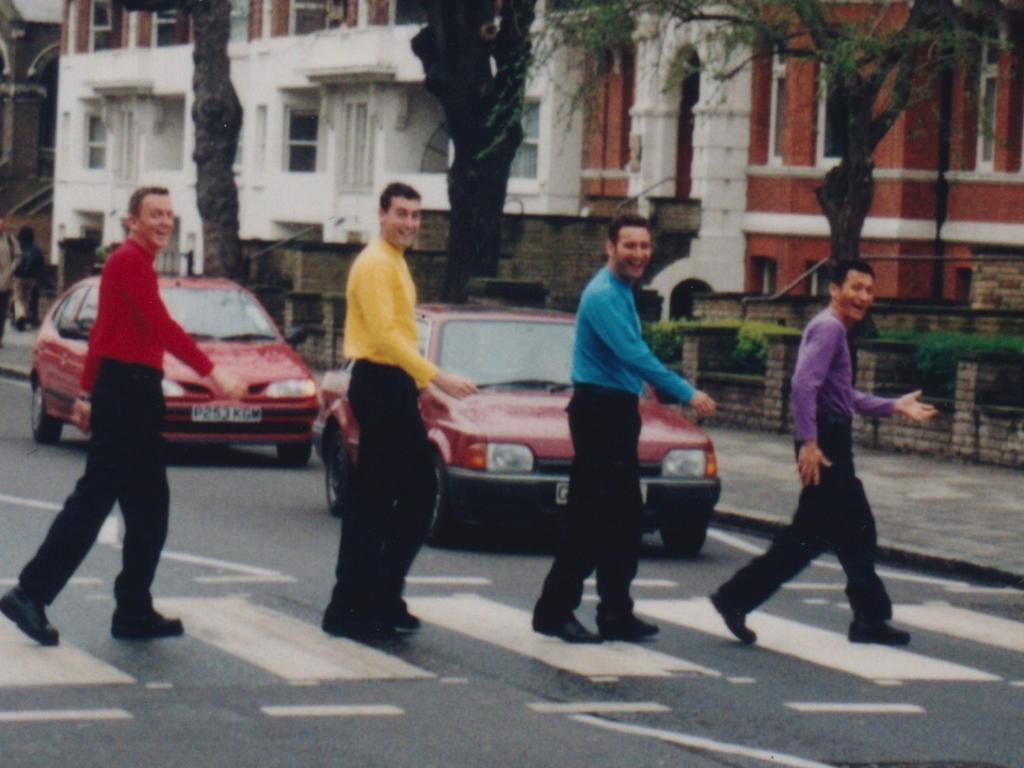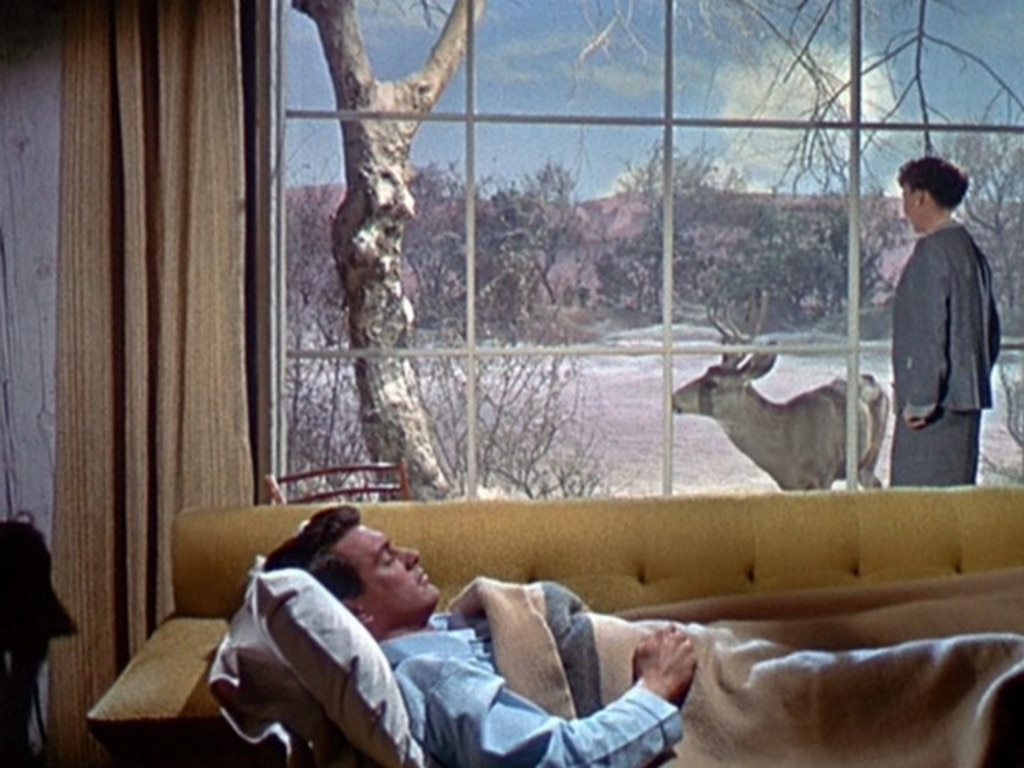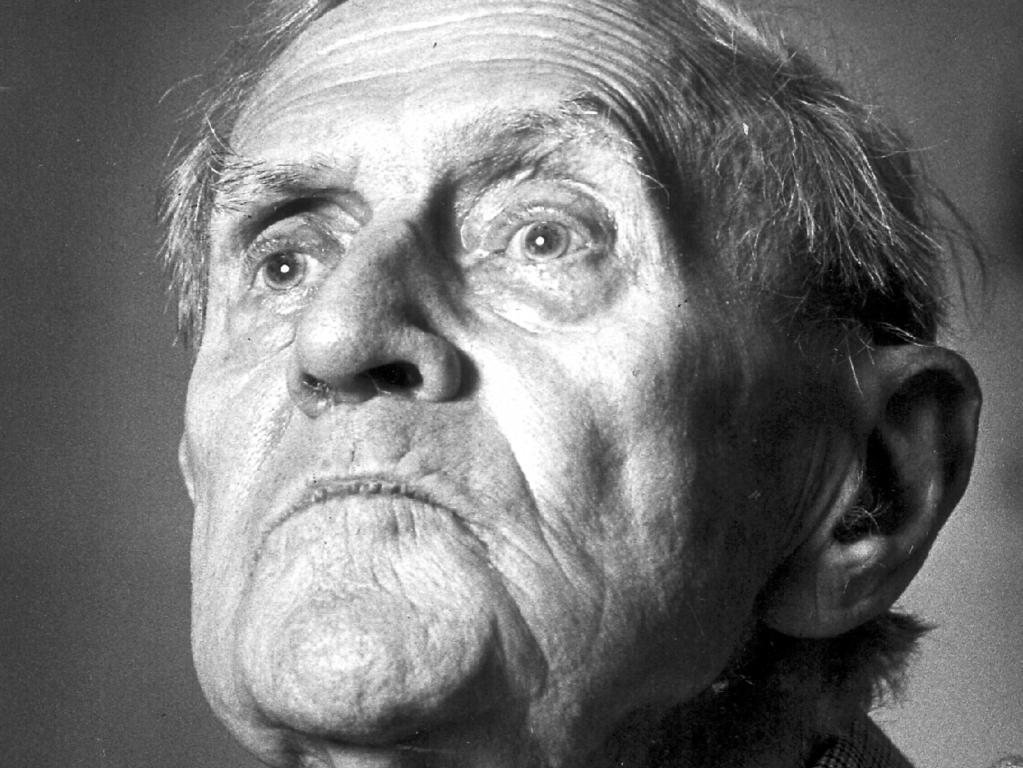The In-Between: Christos Tsiolkas slaps down erotica ‘puritans’
The award-winning author doesn’t shy away from writing about hardcore gay sex in his new book: ‘I think too many of us are writing while looking over our shoulders, wondering what the critics and social media is going to say’.

Christos Tsiolkas has written his most daring novel to date. Forget the risks inherent in his drugs and sex 1995 debut Loaded, the child-whacking in his 2008 bestseller The Slap or the needs-Viagra second coming in his 2019 masterpiece Damascus.
The In-Between is a love story. The two main characters, Perry and Ivan, are of similar age to the 58-year-old Melbourne-based author. Perry, birth name Pericles, is Greek, as is the author. The “almost brutally handsome” Ivan is Serbian. They live in Melbourne, are gay and, having met on a date, are in love.

“He is on a date!,’’ Perry thinks as he decides what to wear. “What a ridiculous situation for a man of his age to be in.”
Yet when Ivan makes his move, “ … Perry did not hesitate, exhilarated by the brutality and longing in the kiss. All there was and all there needed to be was in that unquenchable expression of desire.”
That is a beautiful line but it is just the beginning of their relationship. They are in love with each other but there are other loves in their lives: some past, painful but still there, like a scar of transfiguration; some present, exciting, intense and dangerous; some familial but anything but ordinary.
There’s Gerard, a cruel, married-with-children Frenchman who Perry loved and loves. There’s Lena, Gerard’s daughter, and the woman she loves.

There’s Joe, the cocky workmate who Ivan loved and loves. There’s the once-married Ivan’s daughter and granddaughter. There’s a young, beautiful male prostitute.
“Maybe it is always a risky endeavour to write about love,’’ Tsiolkas says when we meet for dinner, to discuss the new book (in deference to his heritage I order us white wine and octopus.) “You want to be honest, including about the secrets we carry in our heads.’’ He knows this novel includes manifestations of love “that some people will find inexcusable ... I think they are real,’’ he says, “but we are in a present culture that reduces our emotions and our beliefs to the thumbs up and thumbs down.”
Then there is the sex. It is raw, rough, savage, passionate, pornographic, angry, intoxicating, loving. There’s also a gay shame feeling that runs throughout the book. At one point, Ivan dwells on his sex life and thinks “ … this is unholy, this is unnatural.” Perry asks himself if “there isn’t something stunted in the experience of being homosexual.”
The author has been in a relationship for 38 years yet he and his partner, Wayne van der Stelt, still have to think about whether it’s OK to hold hands in the street. They remain caught in the snare of their generation.
Tsiolkas and the erotic need go hand-in-hand but in this novel, his tenth, he raises the bar. I know some readers who think his 2015 novel Barracuda, for example, would be on school reading lists if not for the sex. Asked about this, the author returns to the idea of the “present culture”.
He recalls the writers who “shook him hard by the shoulders” when he was a young would-be writer: Jean Genet, John Rechy, Norman Mailer, Lisa Alther. Such authors “didn’t shirk from sex, from the erotic’’ and nor did he when he wrote Loaded. “I wasn’t scared about writing sex.”
Thirty years on, “It feels more dangerous now”.
“Too many of us are writing while looking over our shoulders, wondering what the critics, Twitter, social media in general is going to say.’’ He pauses and adds, “I don’t want to live in that fear. And I’m f--king sick of the puritans. They’ve never been in my corner.”
■ ■ ■
The In-Between is a thought-provoking exploration of the idea that love is permanent; that once you are in love it never fully leaves you. The title relates to Perry and Ivan. They are in-between as mid-50s gay men, one with an ex wife and child, who met on a dating site; as the Australian-born children of migrants; and as people who have been indelibly marked by a past love.
I’m fascinated by the idea but I need convincing when it comes to believing it. You know how sometimes you read a book and at some point realise you need to interrogate the author? This happened to me about two-thirds through. I started underlining passages and writing, “Really? Ask Christos.” Here are a few of them:
Lena remembering a day her father Gerard fancied a young man he spotted on the beach: “ … all fantasy is forgivable.”
Is it, Christos? “I’m old-fashioned. I still believe in an unconscious. Sometimes thoughts, visions, dreams, fantasies spring up that are sadistic or unconscionable. In my life I actively refuse to indulge those that are most ugly. But the act of fantasy in and of itself is forgivable. I think there is a difference between thought and action. Otherwise we need to reinstate the Inquisition.”
Lena thinking of her father’s decision to remain married and heterosexual to the outside world: “Something must be abandoned for something to be affirmed.”
Must it, Christos? “There are choices we make about relationships all the time, and those choices strengthen the bonds we have with one another. Wayne and I have been together a long time and there have been points where we have individually and together recognised that we have had to make decisions about how we are as a couple that are crucial in order to build a future together.”
Perry talking to Lena, who has decided to hand over a revelatory letter her father wrote to him but did not send: (This chapter, by the by, is one of the finest in the book) “ … Ivan and I are far from young, and we have found each other after long relationships which were difficult, and which were scarring. That is the nature of love; such wounding is inevitable.”
Really, Christos? “God, yes, Stephen. As a couple. As parent and child. As siblings. As friends. Of course, some wounds can’t be healed. The work is in the attempt to do so for one another.”
■ ■ ■
Ivan wants not just to kill Joe but to remove him from past and present existence as though he never lived. Yet when he and Perry are having sex, he imagines he is with Joe. He is “still addicted”. Perry remembers a week alone with Gerard as “the happiest time of his life” and “it hurts still.” Tsiolkas says his long-term relationship with Wayne is “one of the loves I know”. The “guiding light” for this book, however, is a female friend who has been in many relationships, some good, some bad. She told him that success in love was measured not just by longevity but also “by what I’ve learned from the people I’ve been in love with”.
“That was the imaginative curiosity that led me to write the novel,’’ Tsiolkas says. “Both Perry and Ivan are in the ‘in-between’. The past can’t be erased.’’
Stephen Romei is a literary critic. The In-Between by Christos Tsiolkas (Allen & Unwin, Fiction, 400pp, $32.95).






To join the conversation, please log in. Don't have an account? Register
Join the conversation, you are commenting as Logout